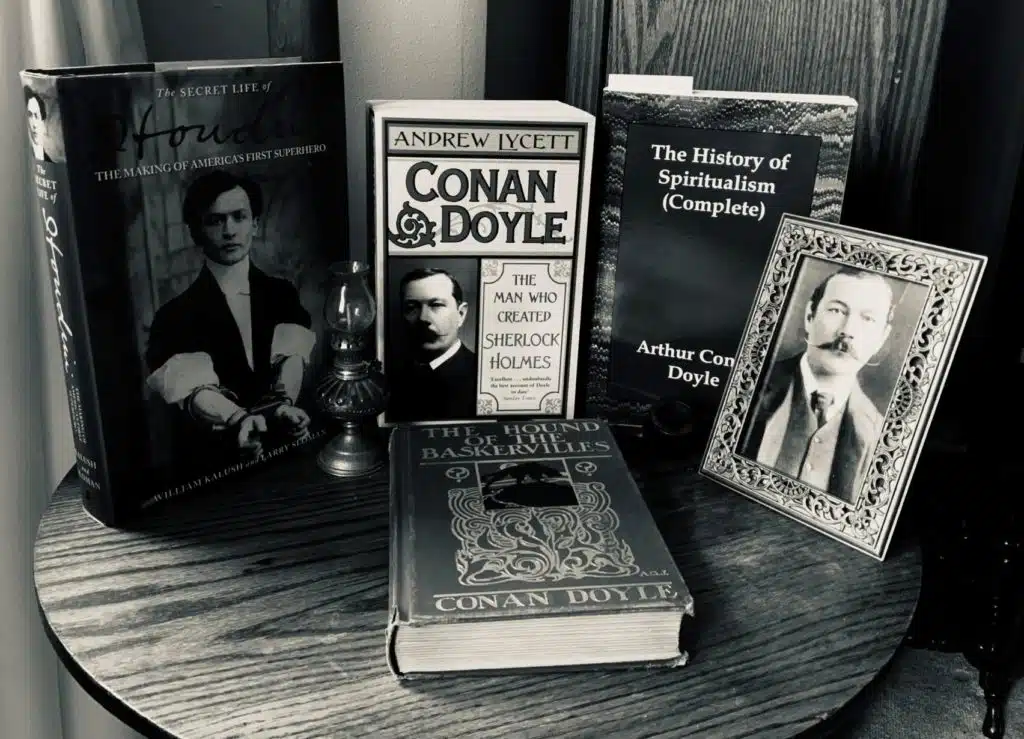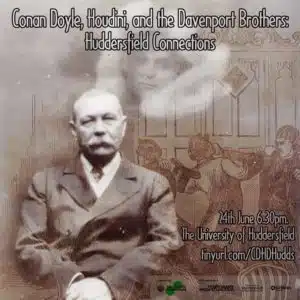My parents gave me the Complete Sherlock Holmes when I was eight years old, and so began my journey into the science of deduction.
I spent hours reading the novels and short stories, and became enchanted with Holmes' ability to use very few observations to draw extraordinary inferences about clients, criminals, the police, and the nature and cause of particular crimes. We are introduced to the science of deduction in The Study in Scarlet.
The application of this approach runs throughout the Holmes casebook, for example in 'The Yellow Face,' a simple pipe left behind on the mantlepiece yields details about its owner's strength, wealth, and his left handedness.
Holmes even challenges Dr Watson to try to learn how to use the science of deduction. For example, in The Hound of the Baskervilles, Dr Mortimer's cane provides a perfect opportunity for making deductions, most of which Watson gets incorrect, but the exchange with Holmes reveals his incredible attention to detail, including the decoding of initials on the cane for Charing Cross Hospital and marks left through dog bites.
My attraction to the science of deduction so enthralled me that its featured in my admissions essay to study at the University of Pennsylvania in the 1980s, and has featured in my own brand of academic magic.
I have the honour of being provided the opportunity to share my thoughts on Holmes through performance magic on the 24th of June at the University of Huddersfield, where I am a Visiting Professor of Performance Magic.
Sir Arthur Conan Doyle, the creator of Sherlock Holmes, was a doctor, a Catholic (trained by the Jesuits), and a spiritualist. His training with Dr Bell developed his sense of deduction and found its way into the Holmes corpus. His interest in spiritualism developed in the late 19th Century and accelerated after World War I, with lectures and tours in the United States and Canada, and a number of articles and books on the subject.

Doyle developed a challenging and at times acrimonious relationship with world famous magician Harry Houdini over the veracity of spiritualist claims and events. Houdini and Doyle were both interested in calling out fraudulent mediums, but Doyle was convinced that there were genuine mediums and Houdini ultimately was not.
As a magician, I have always been intrigued by the ambiguity between and among deduction, deception, and the suggestion that there may something more at work in what people experience or report to have experienced. The history of Doyle and Houdini has been very much part of my own magical formation.
I will explore these themes at the Huddersfield event, which includes two separate plays and a panel discussion about the visit of the Davenport brothers to Huddersfield with their 'spirit cabinet' and the events that transpired in 1865.

Contact
T 07584 615104
E info@todd-landman.com
Keep In Touch
Todd Landman. All Rights Reserved
A Mackman Group collaboration - market research by Mackman Research | website design by Mackman